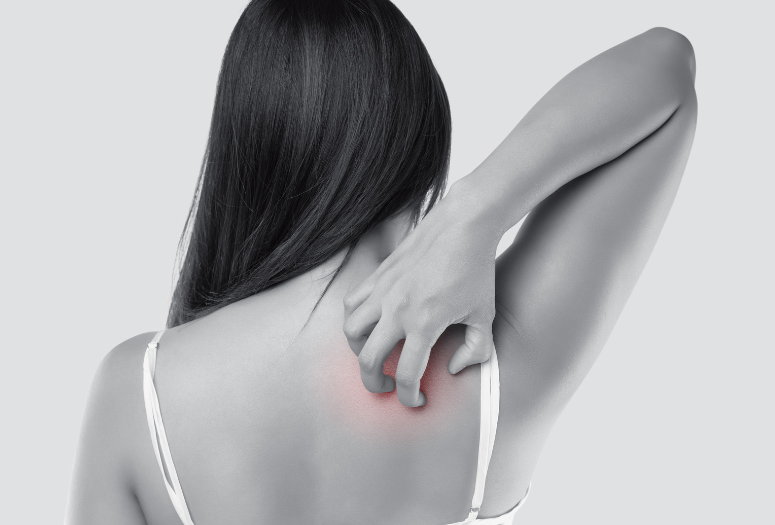Itching, also known as pruritus, is a common problem that a variety of factors, such as dry skin, eczema, and allergies can cause. It can be incredibly frustrating and can make it difficult to focus on anything else. You may have tried everything from over-the-counter creams to home remedies, but nothing seems to provide lasting itch relief.
Causes of Itching
First, let’s talk about what causes itching. Dry skin is a common cause, as it can lead to itching and discomfort. Eczema, a chronic condition that causes dry, itchy skin, is another common cause. Allergies, such as hay fever, can also lead to itching. In some cases, itching may be a symptom of a more serious underlying condition, such as liver disease or kidney disease.
Stress and anxiety can also be the cause of severe itchiness. Stress hormones released in our body activate nerve endings in the skin, which can cause itching of the skin. Stress or anxiety-induced itching can create a vicious circle as the itch intensifies when you focus on it. This can be especially maddening.
Home Remedies for Itch Relief
There are many home remedies that can provide itch relief. Moisturizing your skin regularly can help to keep it hydrated and prevent itching. Taking a cool bath or using a cool compress can also provide itch relief. Over-the-counter anti-itch creams, such as calamine lotion and hydrocortisone cream, can also be effective in providing itch relief.
Medical Treatments for Itch Relief
When home remedies are not providing itch relief, it may be necessary to seek professional help. Your dermatologist may recommend a prescription cream or oral medication to help relieve itching and provide itch relief. In some cases, light therapy may be recommended for itch relief.
Dealing with Maddening Itchiness
It’s important to understand that dealing with itching can be maddening and can lead a person to try anything to make it stop. However, it’s important to remember that self-diagnosis and self-treatment can be dangerous. If your symptoms persist or worsen despite home remedies and over-the-counter treatments, it’s important to consult a healthcare professional for itch relief. But if you’re struggling right now, and can’t wait to see a doctor, here are some suggestions:
Get Immediate Itch Relief
If you need itch relief NOW, here are a few things you can try
- Take an anti-itch medication, such as Benadryl, Claritin, or Allegra
- Soak in a cool bath with oatmeal, baking soda, or colloidal oatmeal
- Apply a cold compress or ice pack directly to the area where you are itching
- Wear loose, breathable clothing
- Apply a hydrocortisone or calamine lotion topically to the affected area
- Avoid scratching or using harsh soaps
- Try relaxation techniques, such as deep breathing, to relieve stress and anxiety
Prevention and Management for Itch Relief
Going forward, there are some things you can try to help prevent itching and achieve itch relief in the future:
- Maintain good hygiene
- Avoid irritants such as harsh soaps and detergents
- Stay hydrated
- Proper management of underlying conditions such as eczema and allergies can help to reduce itching and provide itch relief
- Improve your ability to deal with stress and anxiety more effectively.
Conclusion
In conclusion, itching can be caused by various factors such as dry skin, eczema, and allergies. There are many home remedies that can provide itch relief, but if your symptoms persist or worsen despite home remedies and over-the-counter treatments, it’s important to consult a healthcare professional for serious or reoccuring itch relief. Remember, you are not alone in this, and there are effective ways to achieve itch relief.






